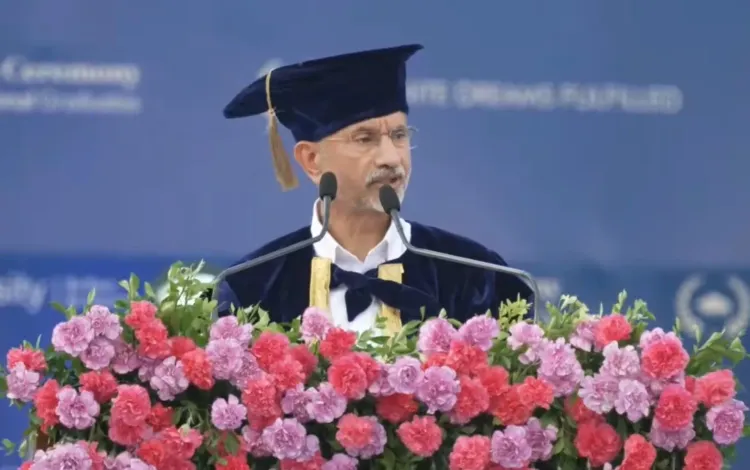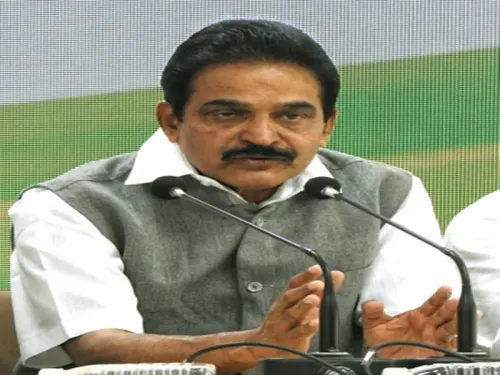Is India’s Partnership Footprint Really Expanding?

Synopsis
Key Takeaways
- India's partnership footprint is expanding globally.
- The focus is on sustainable capabilities in partner nations.
- Cooperation during crises is a hallmark of India's approach.
- Mutual respect is crucial for successful partnerships.
- Recent years have seen significant advancements in connectivity.
New Delhi, May 30 (NationPress) The External Affairs Minister (EAM) S. Jaishankar highlighted that India's partnership scope is not only vast but also expanding across multiple global regions, emphasizing that the nation's commitment to cooperative solutions is most evident in its local neighborhood.
“From engineers in Zanzibar to ‘solar mamas’ in the Pacific, India’s partnership impact is extensive and on the rise. We engage in various initiatives ranging from vocational training and Information Technology to enhancing tax systems and ensuring security. This includes the exchange of trainers and students to facilitate distance education and virtual health training,” remarked EAM Jaishankar during his speech at the Parul University Convocation held in Vadodara, Gujarat.
He stated that India's aim is to build sustainable capabilities in other nations, leveraging our own experiences and insights that can vary from the intricate to the straightforward, and from the innovative to the everyday.
“Remember the saying about giving a man a fish versus teaching him to fish. In India, we promote the latter as a lifelong solution. Our neighborhood has truly felt this dedication to cooperative solutions more than anywhere else. The past decade has witnessed significant changes in connectivity and relationships, with power grids, fuel pipelines, roads, railways, and waterways that seemed unimaginable just ten years ago,” he explained.
The minister pointed out that during crises, India has consistently supported its region for collective welfare. “Whether it was vaccine distribution during the COVID pandemic, fuel and fertilizer supplies post-Ukraine war, or relief efforts following earthquakes in Nepal and Myanmar, India has always been there,” he emphasized.
According to EAM Jaishankar, mutual benefits and respect for each other's sensitivities are crucial in any collaborative effort.
“In a world marked by turbulence, this readiness to support one another will only grow in importance,” he added. He further noted that nations frequently face natural disasters or man-made crises that exceed their capacities.
“In such situations, the cooperative aspect of international relations becomes paramount. It's no longer wise to rely on distant entities that lack connection or empathy. India has certainly embraced a heavier responsibility over the last decade, as evidenced by its response to recent earthquakes in Myanmar, evacuations from conflict zones like Ukraine, and during Sri Lanka's economic crisis,” he stated.









